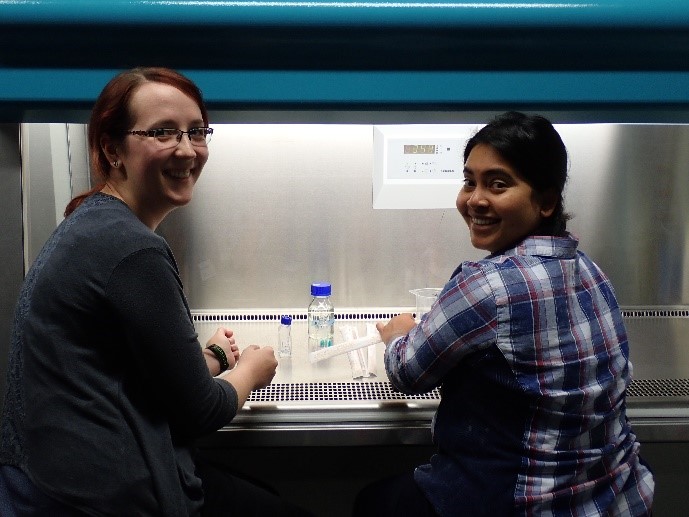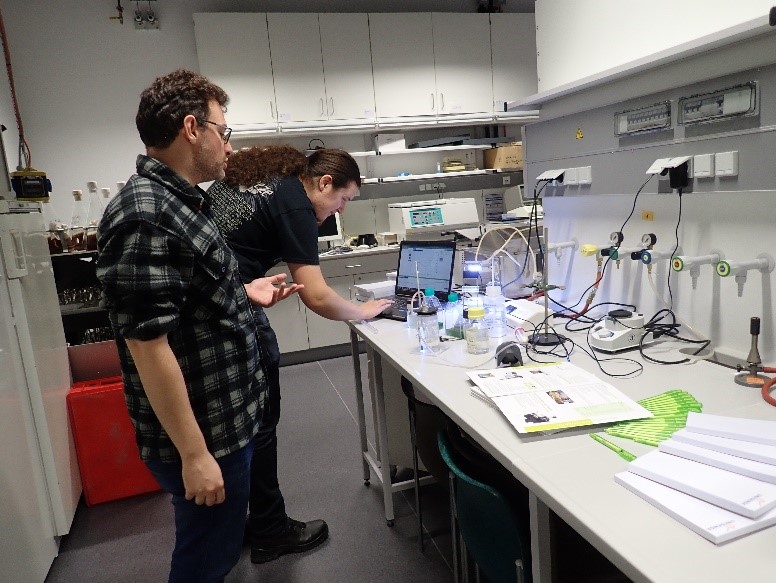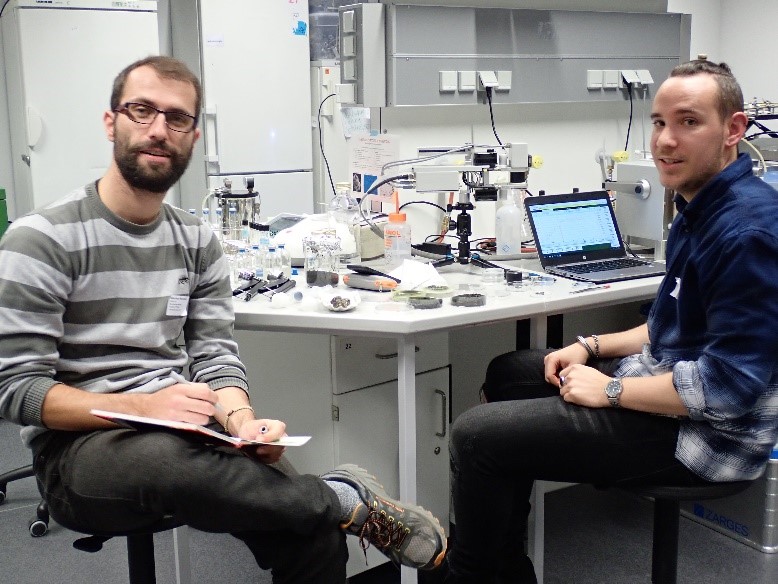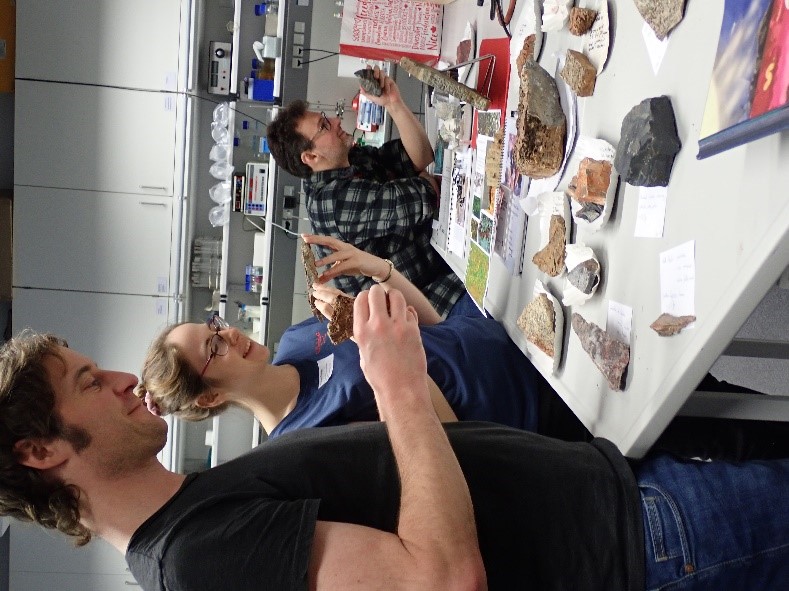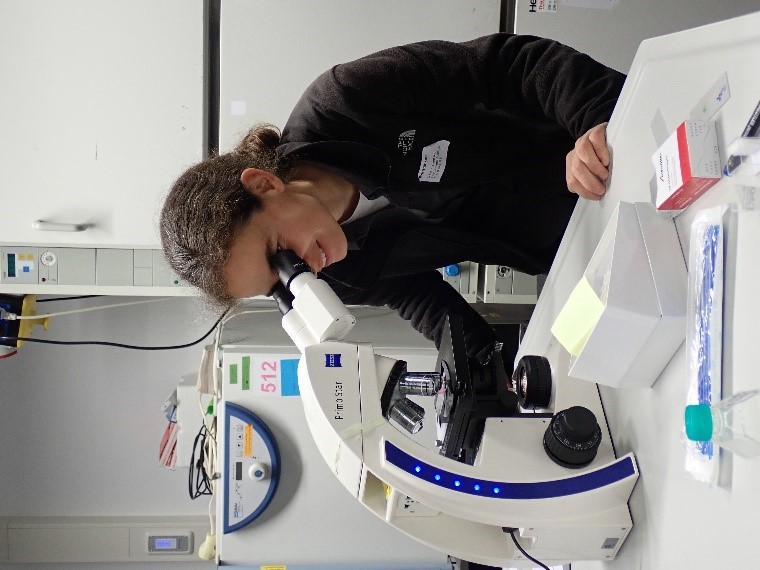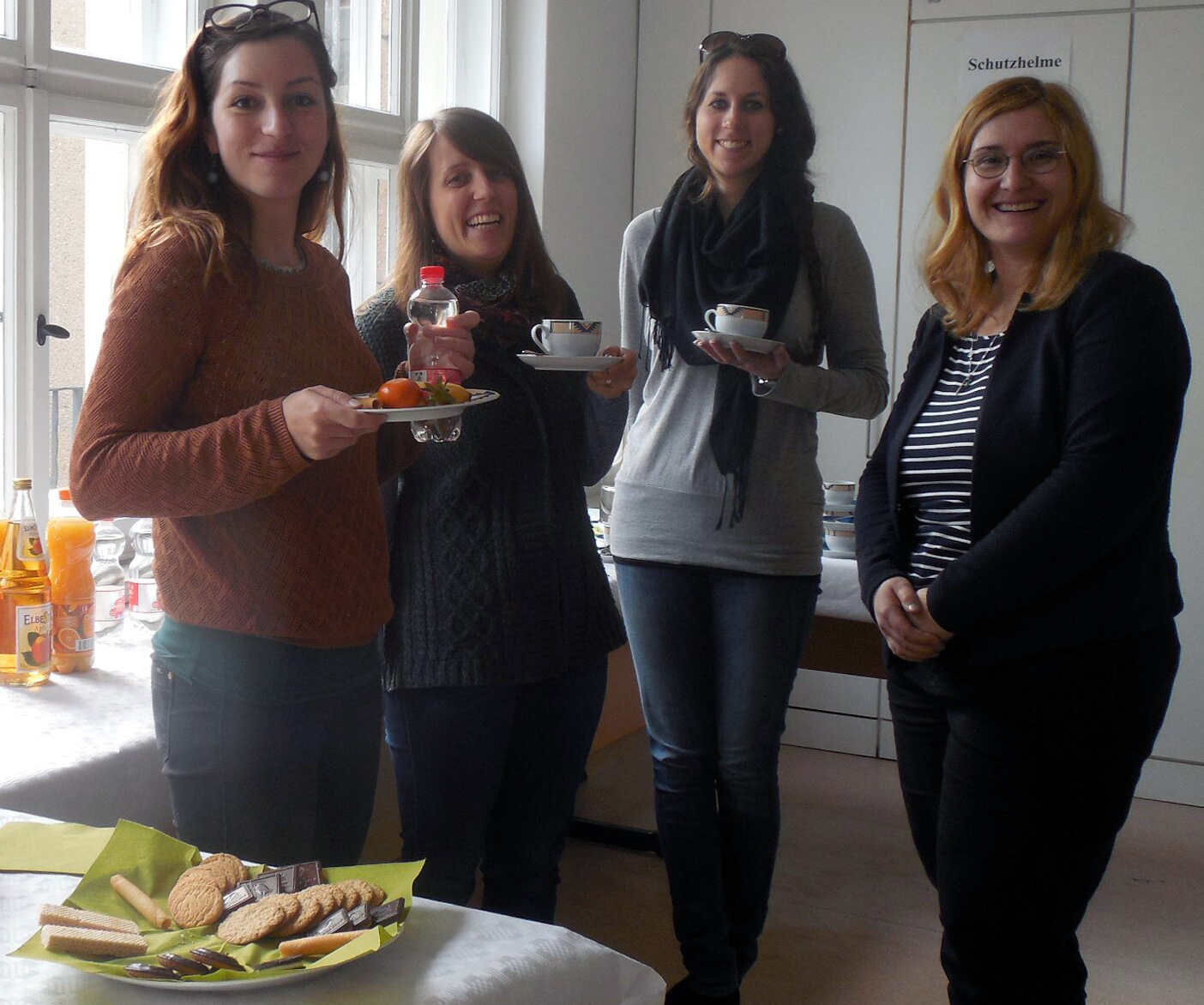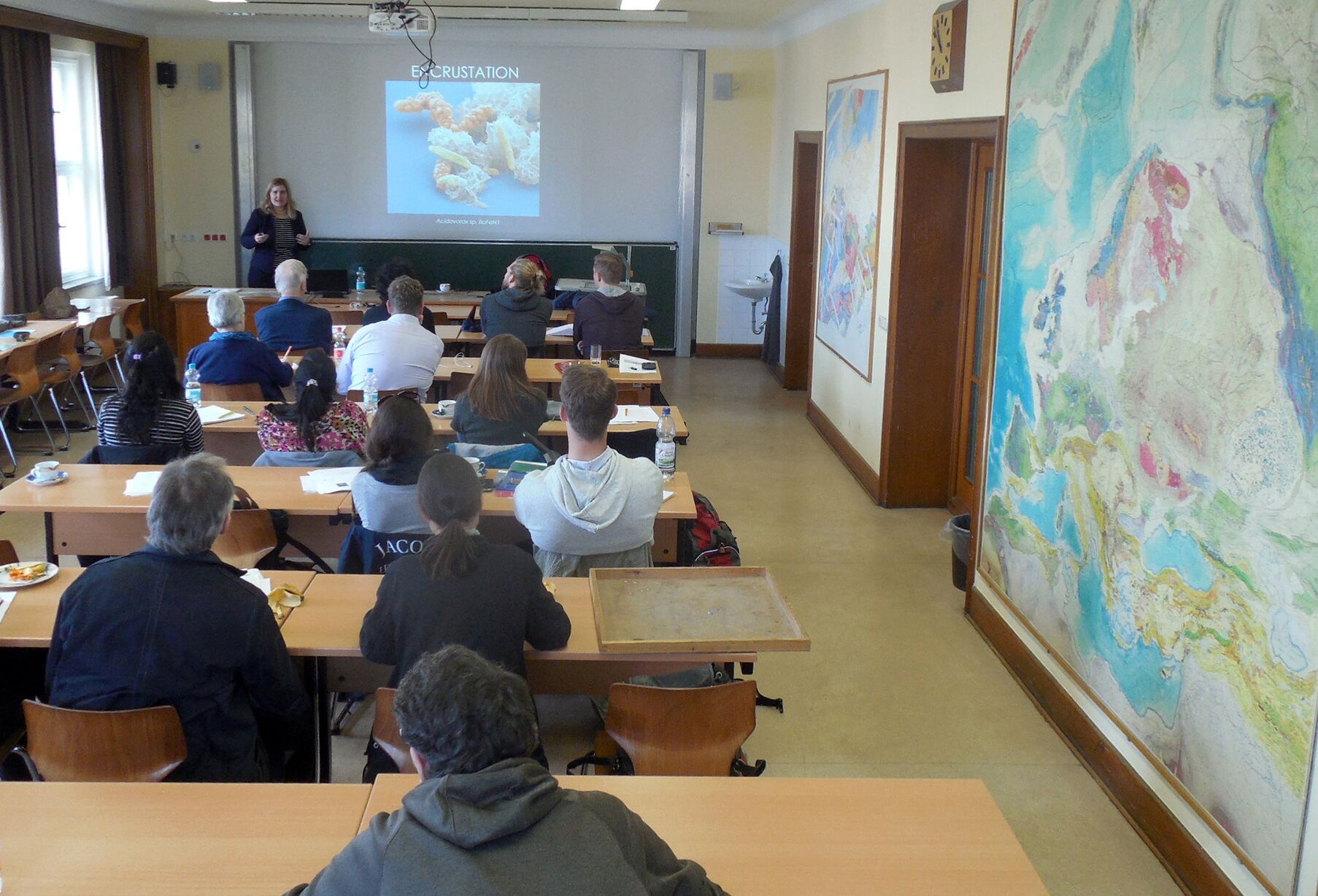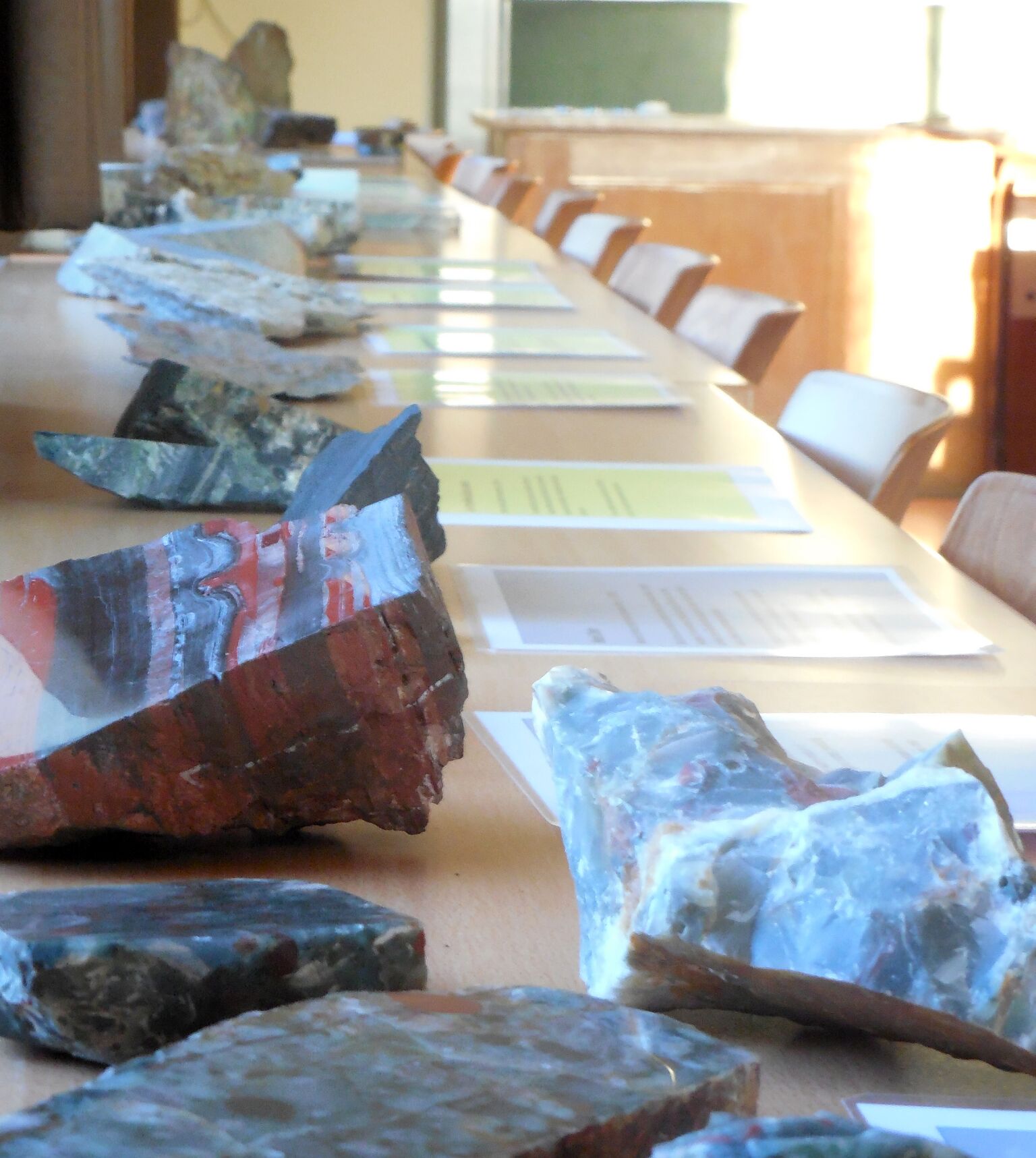Training Workshops
Geomicrobiology Workshop 2019
9-11 October 2019, TU Kaiserslautern
Early Earth enthusiasts were brought together to learn about the challenges facing early life leading up to the Great Oxygenation Event at the TU Kaiserslautern, organised by Michelle Gehringer and Achim Herrmann. Stefan Lalonde (Brest, France) kicked off proceedings by introducing to conditions on Earth during the Archean, with Eva Stüeken (St Andrews, Scotland) presenting archival signs of the diversity of life at this time. Joanne Boden (Bristol, UK) presented computational genetic methods in dating ancient biochemical pathways, while Kerstin Fiege (TUK, Germany) introduced to the process of methanogenesis. Participants introduced themselves with a single slide at a meet and greet event on Wednesday evening. Thursday focused on modern-day microbiology with Nicole Frankenberg-Dinkel (TUK) presenting basic photosynthesis followed by Annick Wilmotte (Liege, Belgium) illustrating cyanobacterial diversity. Biologists and geologists mingled while learning about setting up biological Archean simulation experiments and assessing growth parameters, as well as studying our Archean rock display. The workshop culminated on Friday with presentations highlighting the limitations on the expansion of oxygenic phototrophs during the period leading up to the GOE. Yannick Lara (Liege, Belgium) talked about interpreting the fossilised record against living cyanobacterial morphology and the use of RAMAN spectroscopy to identify biosignatures. The workshop ended with experimental approaches for future studies to investigate how the Earth became habitable.
Initial Training Workshop 2019
Complementary to the First General SPP Meeting, an “Initial Training Workshop” was held for PhD-students and PostDocs from March 26-27, 2019. During this workshop, scientists involved in SPP1833 “Building a Habitable Earth” gave introductory lectures about the relevant topics of the programme, e.g. from formation of the solar system to the evolution of earth’s early oceans and atmosphere.
Find the programme here
Radiogenic and Non-traditional Isotopes: Analytical Methods and Applications 2018
Frankfurt, March 6-9, 2018
A second workshop focusing on the analyses of stable and radiogenic isotopes was held in Frankfurt on March 6-9, 2018. The workshop was organised by Dr. Axel Gerdes and comprised presentations (e.g. by international guest scientists such as Robert Anczkiewicz, Martin Whitehouse and Erik Scherer) as well as technical aspects.
Training Workshop “Archean Surface Environments”
Jena, March 28-29, 2017
In the Archean (4.0-2.5 Ga), Earth's surface was very different from today's: There was abundant volcanism, a probably smaller continental surface with strongly reduced shelf space, higher heat flow and surface temperatures, overall reducing surface conditions, Moon circling Earth in a closer orbit, more intense chemical weathering, different sediment transport patterns, and a significantly higher UV radiation flux, to name a few. Very little is known about weather and climate. In addition, Earth was more frequently impacted by major meteorites. Altogether, these were seemingly unlikely circumstances for life to begin and to spread, and yet it happened, and apparently rather successfully so, even in the Archean.
This workshop was directed at those interested in exploring those aspects of the Archean which contributed to make Earth habitable. In one afternoon and one morning session (March 28/29), hands-on workshops about analytical data, hand samples, posters and thin sections provided key information to constrain the environments of early life. In several lectures, the major controversies in our understanding of this critical time period were discussed.
Radiogenic and Non-traditional Isotopes: Analytical Methods and Applications 2017
Frankfurt, March 7-10, 2017
This workshop focused on the analyses of stable and radiogenic isotopes (e.g., Li, B, Mg, Fe, Sr, Mo, Nd, Hf, W, U-Th-Pb, U) in rocks and minerals by laser ablation and solution-based ICP-MS and SIMS. Presentations (e.g., Stefan Weyer, Axel Schmitt, Wolfgang Müller, Horst Marshall, Martin Oeser-Rabe, Ellis Hoffman etc.) comprised technical aspects about instrumentation and methods and a wide range of applications with emphasis on geochronology, processes on early Earth and in the solar system, composition and evolution of oceans and continental crust. A visit of the laboratories was also part of the program.
Thematic Workshop: High Pressure Experimental techniques and application to Earth‘s Interior
Bayreuth, February 20-24, 2017
This five-day short course provided an introduction to state-of-the-art experimental methods in mineralogy, geochemistry and geophysics as applied to understanding the composition, structure and dynamics of the Earth’s interior. Topics that were covered include high-pressure/high-temperature experimental methods, spectroscopy and X-ray diffraction at high-pressure, transmission electron microscopy, thermodynamics and phase equilibria, high-pressure crystal chemistry, equations of state, transformation kinetics, diffusion and deformation. The course was held in the laboratories of Bayerisches Geoinstitut Bayreuth.
Geomicrobiology Workshop
Tübingen, May 30 - June 3, 2016
Evaluating the changing impact that life has had on the physical and chemical environment throughout Earth history is one of the underlying principles of Geomicrobiology, and requires a thorough understanding of how biological processes are captured in the geological rock record, our only direct archive of early life on Earth. Thus, within the framework of the DFG priority programme SP1833 “Building a Habitable Earth”, this workshop brought together PhD students and postdocs in geobiology/geomicrobiology/biogeochemistry/geochemistry/geology/molecular biology/ microbiology/molecular phylogenetics, etc. to discuss the analytical techniques and research strategies at the forefront of Geomicrobiology today, and to evaluate the current and emerging research topics within the field of early Earth research.
Initial Training Workshop 2016
Cologne, April 5-6, 2016
Complementary to the First General SPP Meeting, an “Initial Training Workshop” was held for PhD-students and PostDocs from April 5-6, 2016. During this workshop, scientists involved in SPP1833 “Building a Habitable Earth” gave introductory lectures about the relevant topics of the programme, e.g. from formation of the solar system to the evolution of earth’s early oceans and atmosphere.
